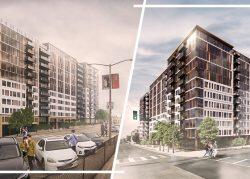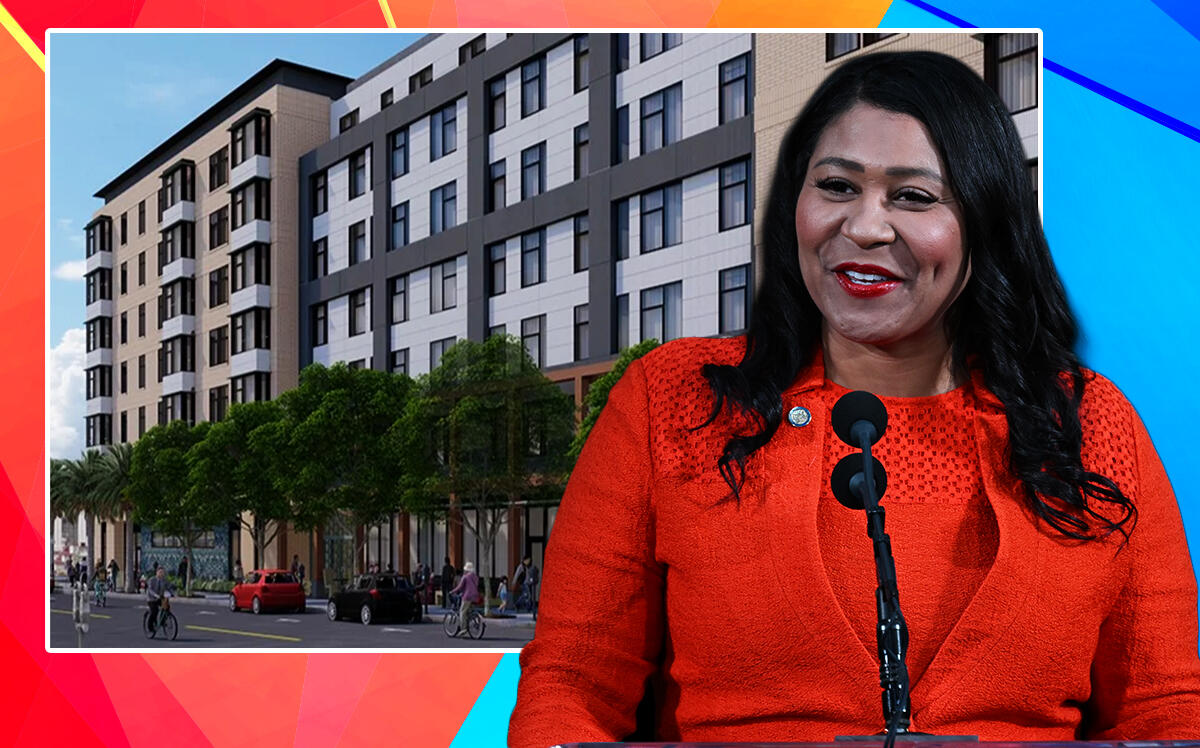Tenderloin Neighborhood Development has broken ground on a bitterly contested, 90-unit affordable housing complex in San Francisco’s Sunset District.
The locally based nonprofit developer fought a two-year battle over its approved seven-story apartment building at 2550 Irving Street, the San Francisco Chronicle reported. It will replace a former police credit union building.
A decision last summer by the Board of Appeals to reject the appeal from the Mid-Sunset Neighborhood Association halted one of the largest land fights in the city in years. It also symbolized what it means to put tightly knit affordable homes in a neighborhood that tried to keep them out for decades.
The Sunset District has added just 26 low-income units over the past few decades, according to the Chronicle. In the past 10 years, more than 4,400 neighborhood residents applied for affordable housing through the city’s lottery system.
Mayor London Breed and Supervisor Joel Engardio hailed its groundbreaking and expressed hope the project would smooth the way for similar development on the westside.
The project is long overdue in a city that must build 82,000 homes by 2031, 46 percent set aside as affordable to low- and moderate income households, the mayor said. But similar fights are brewing over dense development near Ocean beach.
“I think change is hard for people, but the other side means things stay the same and don’t get better,” Breed told the Chronicle. “You’re adding people to the community that will support the small businesses. Would I like to have single family homes for everyone in the city? Of course, people love them. But the reality is San Francisco is a dense city and we have to build where we can.”
The all-affordable housing project was given a green light in December 2021, after a judge ruled against the neighbors’ request for a temporary injunction to halt the development.
The Mid-Sunset neighbors group appealed the decision, arguing the city should revoke the project’s construction permit. It claimed toxic substances near the site hadn’t been adequately tested and cleaned up. It also said the nonprofit developer failed to engage the community and address concern over its size and scale.
It also lost an appeal of the demolition of the San Francisco Police Credit Union building, which was razed in June.
A lawsuit to block the project and appeals by the neighborhood association added $1 million to the $99.4 million project cost of the project, according to Anne Stanley, a spokeswoman for the Mayor’s Office of Housing and Community Development.
The affordable homes are now projected to cost $1.1 million per unit.
The project would have had even longer delays and costs had it not been for SB 35, a state law that fast-tracks the approval of affordable homes.
In February of last year, the state Department of Housing and Community Development awarded a $36 million grant to help fund the 90-unit affordable complex on Irving Street.
Read more



“People say we have enough luxury housing, we need affordable,” Engardio told the Chronicle. “Well, here we are, delivering affordable housing in the Sunset. We are delivering what people say they want.”
Under the city’s local preference ordinance, local residents who qualify would get first dibs on 40 percent of the units.
“For many people the real proof will be when it’s developed and looks nice and interacts well with the existing community and the people who move in are regular people,” Katie Lamont, chief operating officer for Tenderloin Neighborhood Development, told the newspaper.
“We are still a couple years away from being able to prove things for doubters,” she said.
— Dana Bartholomew
